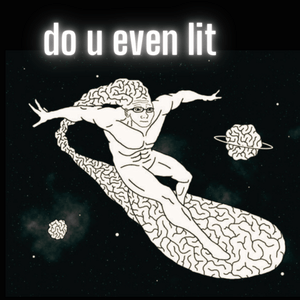"He never sleeps, the judge. He is dancing, dancing. He says that he will never die."
Wrapping up the second half of our discussion on Cormac McCarthy's 1985 classic, in which various chickens come home to roost.
The Glanton gang's downfall: on the run from the Sonoran cavalry, mercy killings, greed and symbolism of coins, the takeover of the ferry, the Yuma strike back, the judge's apocalypse-chic fashion, the Idiot plays his part (??).
On violence and human nature: Rich makes the base case that humans don't have a 'true' nature but respond to local incentives, Benny finds some logic in the conservative tradition for avoiding a major upset to the fragile equilibrium of modern civilisation, and Cam adds game theoretic reasons for having a government or third party that can make credible threats of violence.
What makes the Kid different: Rich thinks he isn't any more moral than the rest of the gang, but we end up coming up with a pretty good explanation for why the judge singles him out for opprobrium and considers him such a disappointment.
On the sunset of the Wild West: the kid becomes the man, the cycle of violence perpetuates itself, mass slaughter of the buffalo, McCarthy's satirical skewering of manifest destiny, interpreting of the epilogue and the last dance.
Also: some general thoughts on tackling our first McCarthy, his idiosyncratic writing style, and the ambiguity around his antagonist's true identity.
CHAPTERS
(00:00:00) chitter chatter
(00:09:08) The Glanton gang’s downfall
(00:25:00) The Idiot
(00:32:33) Cultural technologies for reducing violence
(00:45:33) What makes the Kid different?
(01:03:06) Greed, exploitation, and the end of the Wild West
(01:13:13) The Bonepickers: the cycle of violence repeats
(01:22:12) The last dance: Is the judge a supernatural being?
(01:49:40) Summing up and last-minute token criticism
WRITE US:
We love listener feedback. Send us a note at
[email protected] to correct our bad takes, add your own, or just say hi.
NEXT ON THE READING LIST:
The Nose - Gogol (short story)
The Odyssey - Homer (Emily Wilson translation)
White Noise - Don DeLillo

